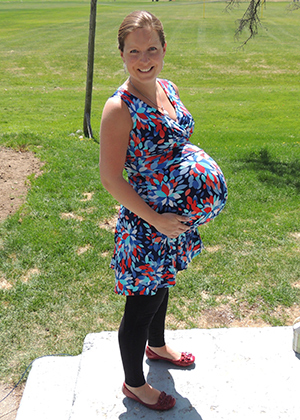When I was pregnant with my first child, I experienced the usual mix of delight and trepidation that comes with impending parenthood. However, I was also concerned with how my pregnancy might threaten to disrupt the professional identity I had so assiduously constructed for myself as a young, female professor in the early stages of my career.

My pre-pregnancy approach was to focus exclusively on the epistemological realm and conduct my professional interactions exclusively around processes of disciplinary knowledge (its production, acquisition and dissemination). I felt that this approach insulated me against a variety of awkward social interactions, ranging from students sending me friend requests on Facebook to comments like “great shoes!” in my teaching evaluations. If I set the rules of engagement in the realm of the purely cognitive – or so my reasoning went – then I would enjoy the same respect and authority my male colleagues were afforded. Despite my best intentions, pregnancy compelled me to deconstruct the paradigm I had established to shape my professional identity.
My pregnancy unfolded over the course of a full academic year, from conception in August to delivery in early May. For several months of my pregnancy I clung to the knowledge-centric model of academic selfhood: intent on policing the boundaries between the public and the private spheres of my life, I made no announcement to my students and ignored any overtures they made to discuss my impending motherhood.
Pregnancy makes public what would otherwise be private acts
Second semester coincided with my third trimester and I became, to borrow Shakespeare’s phrase, “great with child.” As my Jacobean Shakespeare course began, I refused to acknowledge the elephant in the room (which I increasingly resembled). Shakespeare, my unlikely midwife, had other plans.
Because I had set the syllabus and ordered the plays before I was pregnant, you can imagine my consternation when I realized that many of the plays I assigned were focused on maternal and pregnant bodies. Unwittingly, I chose two plays in his canon where pregnant women appear onstage – Measure for Measure and The Winter’s Tale. In both of these plays, pregnancy cannot be denied, hidden or erased. In Juliet’s case, her pregnant body belies the fact that she and her fiancée had premarital sex, while Hermione’s heavily pregnant body prompts her husband to suspect her of having an extramarital affair.
Pregnancy makes public what would otherwise be private acts; the men in these plays read (or misread) female bodies as uncontrollable, uncontainable and beyond their authority. Although both women are exonerated in the end, Shakespeare uses pregnancy to explore how bodies (female bodies in particular) are open to multiple interpretations (and that the true destabilizing forces are not female inconstancy but male anxiety – but that’s a different essay).
I am now someone’s mother, and I want to explore how this identity unlocks new possibilities in my teaching
As my students and I examined Juliet and Hermione’s loss of control over how their bodies were interpreted, the disavowal of my pregnancy became increasingly untenable in the performative space of the classroom. During the course of the semester, I realized that by compartmentalizing my personal experience, I was doing my students and myself a disservice. By restricting our discussions to the epistemological level, I missed opportunities to explore not only the emotional responses, physical experiences and identity shifts of Shakespeare’s characters but also our own.
I had hitherto treated the classroom as a space for sharing knowledge; I hoped that by acquiring new knowledge, students would be inspired to undertake their own transformative learning journeys. However, I couldn’t model my own transformative experiences until I shifted to a much more integrative approach whereby the classroom becomes a fertile site for producing new forms of knowledge.
In a widely shared article in the New York Times, “Girlfriend, Mother, Professor?” (January 25, 2016), Carol Hay explores the limited cultural scripts available for female academics and laments, “male colleagues don’t have these problems.” She makes a compelling case for deconstructing the archetypal male professor and redefining identity categories for women in positions of social power. While I agree with Ms. Hay when she declares, “I’m not their mother. And I’m not their girlfriend either. I’m their university professor,” I am uncomfortable with an outright disavowal. I am now someone’s mother, and I want to explore how this identity unlocks new possibilities in my teaching, my research and my role as a member of the academy.

Thank you, Jessica, for this thoughtful piece on confronting and potentially reconciling the conflicting identities of “pregnant woman” and “professor.” It reminded me of my first pregnancy, which coincided with my first two teaching experiences (a summer course and a fall term course). I, too, felt compelled to ignore my swelling self in the classroom. After all, I wasn’t due until February. And even though I was teaching the history of childhood (!) I never acknowledged in class that I was expecting. It just didn’t seem professional. But now, years later (and with the advantage of having a full-time position), I recognized that I missed an opportunity. And I now embrace the opportunity to listen to my “mother” side when I teach the history of childhood.